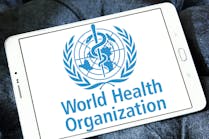Pediatric diabetes rises during the pandemic
Health experts at the American Family Children's Hospital are observing a significant increase in cases of pediatric Type 2 diabetes over the last year compared to 2019, announced the University of Wisconsin-Madison School of Medicine and Public Health (UW Health).
Not only have providers seen an uptick in cases of Type 2 diabetes, but the cases of both Type 2 diabetes and Type 1 diabetes have also presented more severely in patients.
Both types of diabetes can present with mild symptoms such as increased thirst and urination, weight loss, blurred vision or fatigue and often can be diagnosed following a visit with a primary care provider. However, during the pandemic, those presenting with new onset diabetes have been sicker, with patients coming into the emergency department with significant dehydration, very high blood sugar levels, and high ketones leading to diabetic ketoacidosis.
"Families with children have had a very tough year with the pandemic impacting every aspect of daily life," said Dr. M. Tracy Bekx, director of the Pediatric Diabetes Center at the American Family Children's Hospital.
"We know some families have postponed appointments hoping to visit their provider when COVID-19 is less of a threat, but if your child is experiencing things like increased thirst, frequent urination, fatigue, or significant changes in weight, those could be early signs of Type 2 or Type 1 diabetes. It is important to reach out to their healthcare provider for evaluation to prevent the severe presentation of diabetic ketoacidosis."
Type 2 diabetes, which is seen more in adults, and is associated with obesity, is increasing in our pediatric population. While genetics plays a role, healthy diet and exercise are also key to preventing this chronic disease. UW Health offers the Pediatric Fitness Clinic with guidance from a physician, dietician and exercise physiologist to support family health and wellness and prevent the complications of obesity, such as Type 2 diabetes, in our youth.
As we enter the middle of winter and COVID-19 continues to be a threat to our health, it is important to focus on general well-being, such as eating well-balanced meals, incorporating daily movement, and pursuing good sleep habits. Likewise, it is important to not delay routine check-ups.





